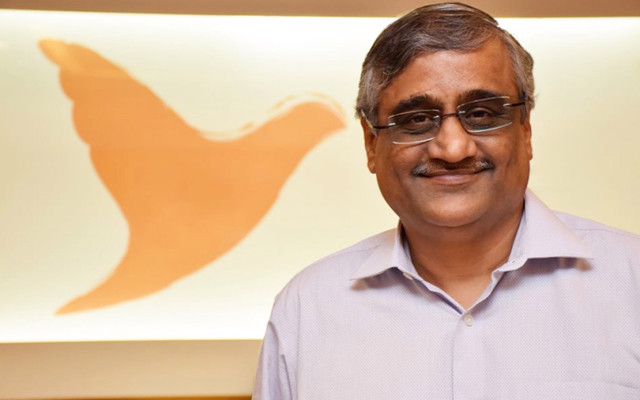
Will Kishore Biyani be third time lucky with bet on online grocery biz?


As the Future Group takes another shot at e-commerce by launching a mobile app-based grocery delivery service, past failures and an increasingly competitive market will likely be on chief executive Kishore Biyani's mind.
According to a report in The Economic Times, the company is looking to leverage its well-established network of 'EasyDay' neighbourhood format stores for its new initiative.
EasyDay has around 950 supermarkets across India and Future plans to take this number to 10,000 by 2022.

EasyDay already has a WhatsApp-based hyperlocal delivery system for its members, who can send a list of items to the store manager and specify a pickup or delivery time. A 10% discount and free home delivery are among the perks of membership, which costs Rs 999 a year.
Through its new app which will be launched in a couple of weeks, the company will use the EasyDay stores to serve its customers within a radius of 2-2.5 kilometres, delivering items such as fresh fruits, vegetables, dairy items and other household products.
Future Group controls more than a third of India's organised food and grocery market. But the retail behemoth's previous attempts at digital delivery adoption have not exactly gone according to plan.

Biyani has been skeptical about e-commerce and has long maintained that he will not venture into the space until he sees a route to profitability.
Future's two previous online ventures - Future Bazaar and Big Bazaar Direct – failed to gain traction and eventually shut down.
The group reportedly spent about Rs 300 crore on its online experiments, the majority of which was focused around FutureBazaar.

FabFurnish.com, the Rocket Internet-backed online furniture and home furnishings store it acquired in 2016, was later merged with its home furnishing brand HomeTown.
Will it be successful this time around?
Heavy competition

The Future Group's decision to venture into the online grocery space comes at a time when tech startups, internet giants and brick-and-mortar retailers are seeking to get a piece of the pie.
While Chinese e-commerce giant Alibaba recently committed $300 million (around Rs 1,921 crore) to homegrown BigBasket, US retail giant Walmart is nearing a deal to acquire a majority stake in Flipkart, India’s largest e-commerce company Flipkart.
Flipkart is believed to be running pilots in Bengaluru for its foray into groceries.

In addition, rival Amazon recently received regulatory approval to set up a retail unit in the country to sell private food labels.
Amazon has committed $500 million over the next two-three years towards this food retail unit. Amazon also offers online delivery of groceries and daily essentials through its app Amazon Now and its online supermarket service Amazon Pantry.
“The grocery market is at a tipping point so this is possibly the right time to enter into this market,” said Ujjwal Chaudhry, engagement manager at research agency RedSeer. "People are getting more open and comfortable with the idea of buying online, especially their daily needs."

With BigBasket expanding and both Flipkart, Walmart and Amazon honing in on the space, can Future Group claim a significant market share?
“It’s possible that when they ventured into online grocery in the past, the market was too small and so couldn’t really see any tangible benefits. But now that the market is growing, they have an opportunity of gaining a good market share,” Chaudhry said.
He added, however, that execution will be key and that data analytics and last-mile delivery will be defining factors.
Future Group has been stepping up its efforts of late to integrate its brick-and-mortar and digital businesses. With this in mind, Biyani had announced a Retail 3.0 initiative last November aimed at making the group Asia’s largest leading integrated consumer company.
Biyani had said Retail 3.0 will see the use a high level of personalisation and predictive and analytical technologies, adding it would strike partnership with tech companies for these purposes.
